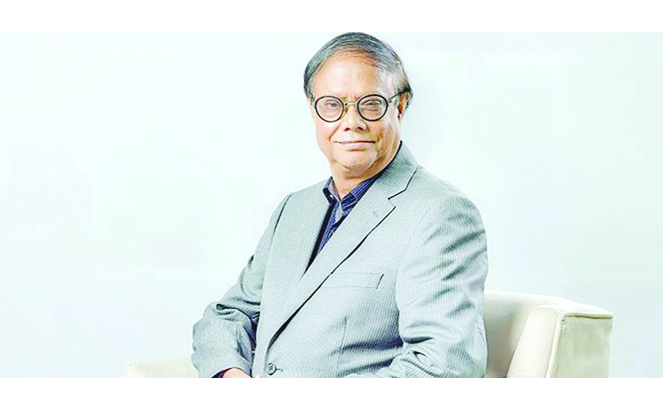

Staff Correspondent: Bangladesh Bank Governor Dr Ahsan H Mansur has announced a major policy shift: the exchange rate of the US dollar will soon be determined by market forces. Speaking virtually from Dubai at a press briefing held on Wednesday (14 May) at the central bank's headquarters in Dhaka, the governor said the move would usher in greater transparency in the foreign exchange market and align the dollar rate with actual supply and demand.
He reassured that thanks to strong remittance inflows and robust export earnings, the exchange rate is unlikely to spike significantly once it becomes market-driven. "This reform will enhance the efficiency of foreign exchange reserve management and foster a more investment-friendly environment in the country," he said.
The press conference, held at the Jahangir Alam Conference Hall, was also attended by Deputy Governors Nurun Nahar and Dr. Habibur Rahman, alongside other senior officials of the central bank.
Governor Mansur also highlighted that the International Monetary Fund (IMF) has responded positively to ongoing reforms and discussions. As a result, Bangladesh expects to receive two tranches of financial assistance from the IMF in June as part of its economic support programme.
One of the central pillars of the reform initiative is to improve governance in the banking sector. "We have already restructured 14 bank boards, bringing in qualitative changes," said the governor. He added that banks with more than 10% non-performing loans (NPLs) will no longer be allowed to distribute dividends. Moreover, banks facing shortfalls in cash reserve ratios or statutory liquidity requirements will also be barred from paying dividends if they have outstanding penalty interest or fines.
"Bank reform has begun," the governor asserted. "We are taking firm action against those who have mismanaged. If needed, we will take over failing banks, merge them, or do what must be done. Bangladesh Bank stands with depositors-not with banks."
He emphasised that the ultimate goal is to protect the interests of depositors and restore stability in the banking system, even if it means temporary state intervention. "The state may take over troubled banks temporarily, but the goal is to turn them around," he concluded.
